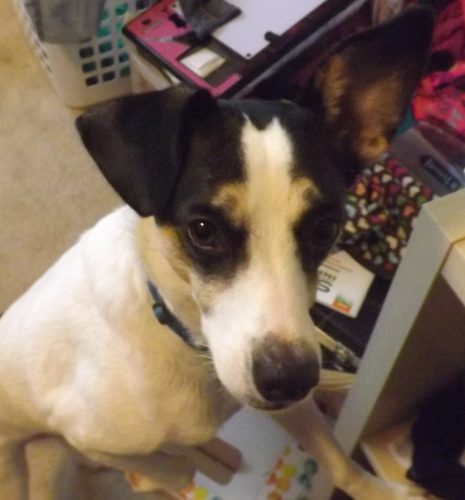
Looking for the Good
When Pop Tart first came to live with us, she had a general anxiety disorder diagnosis. Almost two years, lots of hard work, and more coping mechanisms than I can count later, she still has symptoms of anxiety but no longer a disorder. Still, a generalize feeling of fear or anxiety can over take her at just about any time.
In addition, she is one of those sensitive souls that FEELS (and yes, all caps) everything. One of the things we have struggled with as parents are school reading assignments that have dealt with death (in 4th grade, 2 classroom books assigned back to back dealt with child death and the next one started with a child being alone with an adult when the adult died) or cruelty of some sort. We understand that books are a safe way for most children to start exploring those ideas, and that 10 years old is generally a good time for that. However, for a child that has experienced her own significant trauma, who has been witness to violence, and is trying to come out the other side, those books mostly serve as portals back to a much worse time in their lives.
This year has been better, but the books Pop Tart is reading in school are still dealing (as they should be) with ever increasingly nuanced themes and difficult subjects. In order to deal with these, and prevent anxiety attacks, melt downs for reasons we do not at the time understand, or nightmares, we have a policy that if Pop Tart reads something that upsets her, she should come talk to us about it. (Trust me, it was like pulling teeth to figure out why she was so upset for so long last year, until we realized she was reading Sadako and the 1000 Paper Cranes.)
Right now, Pop Tart is reading Jackie’s Wild Seattle. There are animal deaths as a result of cruelty on the part of people and animal deaths simply because wild animals sometimes die or kill other animals. In addition, the parents in the book are off in Afghanistan with Doctors Without Borders, so every couple of chapters there is something about rampant sickness and land mines.
Honestly, this book is not as bad as some of the others. The overall theme of hope is much clearer, and there are definitely good people- not just kids, but good adults, too. But we still get some nights when there’s a knock on our door because Pop Tart needs to talk.
I will be honest, I kind of like these talks. We have a chance to talk to her about how the world is and how we can help make the world a better place. When it comes to animals being injured by other animals, we do talk about how that is the natural order of things, how some animals need to eat other animals to live, and also about how we, as non-vegetarians, eat animals. She may very well be someone who becomes a vegetarian early (and we would totally support that), but until then, we think it is important she understand that animals did die for her to eat her chicken nuggets. And that while she may not want the baby rabbits to be killed, she does not want the baby bears to die of starvation either.
When it comes to the actions of people, there is no sense trying to pretend to her that there are not bad people in the world. There are people who are cruel, both purposely and casually. There are people who think about things differently than she does and do not see actions she would see as “bad” as anything other than neutral. We have also talked about how sometimes “good” people may kill an animal, purposely. (I grew up in rattlesnake country, so we talk about how her Pa used to kill rattlesnakes that came through our yard in the interest of safety for the neighborhood kids and pets.)
But the best part is when we talk about what she can do, what people she knows, are doing to make the world a better place. We talked about land mines and yes, they are very real and very scary (though not something she will ever have to deal with, except by choice) and how there are people who dedicate their lives to trying to get rid of land mines. This book gave us the great chance to talk about Doctors Without Borders and the amazing work they do, as well as friends of C’s who worked with the Peace Corps as doctors and left their lucrative lives in CA to go practice in Africa.
It gave us a chance to talk about PAWS, and animal rescue group where we adopted one of our dogs (not one she ever lived with, but still), that also does wildlife rescue and rehabilitation. We also talked about one of my childhood friends who is in the process of getting her rescue farm officially designated as such.
And finally, we talked about her former foster families, and how important what they do is. It did not directly relate to the book, but it did directly relate to her life, and the reminder that she knows amazing people who are doing a great good every day.
I love these talks. I love these talks not only because they help her get past her anxiety but because they give her power. They give her power to see how she can make a difference in the world around her, and they give her the power to see the good people all around her are doing, every day. And that is what I want her to focus on. Not the bad. We know the bad exists, let us instead pay attention to the good, to the ways in which ordinary people can make the world a better place, and to know that we can make choices to be one of them.




